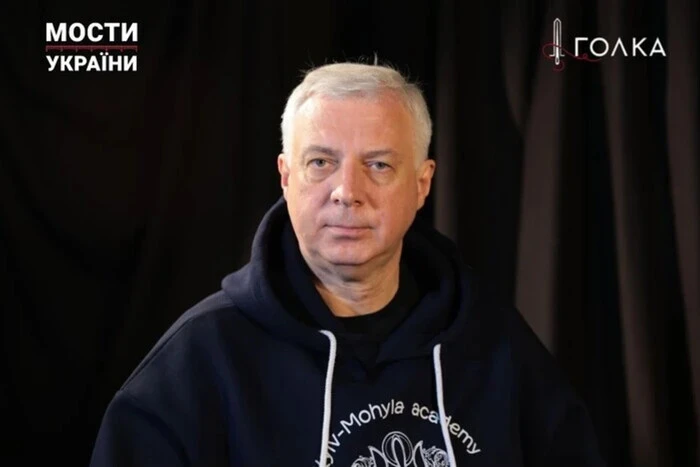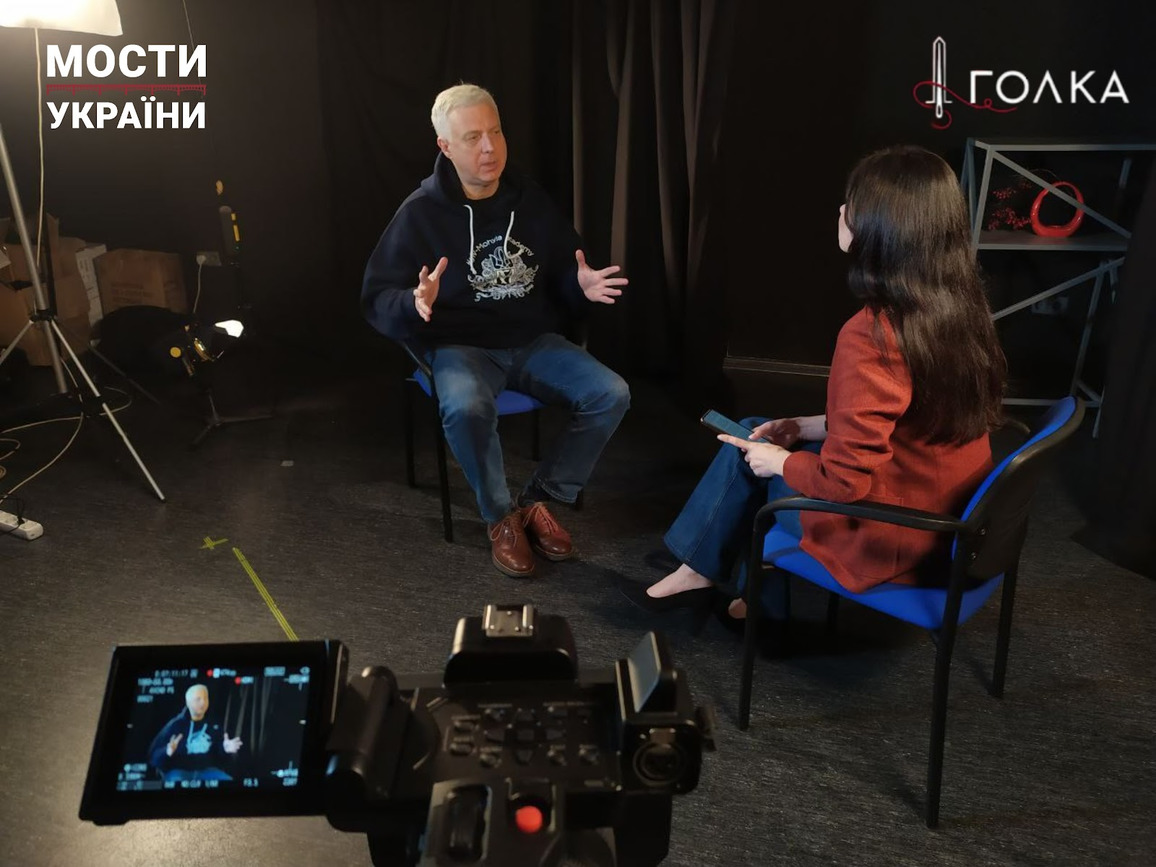Serhiy Kvit: The opening of the representative office of the Kyiv-Mohyla Academy abroad gives a Ukrainian perspective to our children living abroad

Mohyla Academy opens a branch abroad. Young people need to preserve their identity in order to return
The level of education largely determines whether young people will choose to live in Ukraine or continue to move abroad. Therefore, we need to reform higher education institutions. This means granting them financial autonomy, integrating research, and reducing the number of universities, – believes Serhiy Kvit, President of the National University of Kyiv-Mohyla Academy and former Minister of Education.
This year, the Kyiv-Mohyla Academy opened its representative office in Munich for Ukrainian school graduates who went abroad because of the war. And it is going to expand its network of institutions abroad. According to Kvit, this helps keep Ukrainian youth in touch and enables them to preserve their identity. And this influences their decision to return to Ukraine.
Who should be involved in the education of Ukrainian children abroad? Can Ukrainian universities compete with European ones? How can we bring back the young generation?
Serhiy Kvit, President of the National University of Kyiv-Mohyla Academy, answers these and other questions in the project Mosty (Bridges) of Ukraine by the «Holka» civil initiative.
Much depends on education, including how much Ukrainians will associate their future with Ukraine. This also applies to children who have left with their refugee families. Education gives a perspective on the future of this country. We need to consider what country these people should return to and what prospects education should outline for people who have left abroad or live here.
We have several post-Soviet problems. For example, science is detached from higher education. There is the Humboldt concept, which states that the best teacher is a leader in their research field. Also, first-class universities abroad operate on the principle of comprehensive university autonomy. In Ukraine, reputational factors do not work, and reputation is not capital. In the Western world, reputation is the main capital. For the reputational factor to work, it must be linked to finance.
Therefore, giving financial autonomy and integrating research and higher education is necessary.
Young people need to feel that they are needed. These are very emotional things. If a person can fulfil themselves, if they understand that their home country cannot make it without them, and they will have all the opportunities, including career growth, if they are involved in this work. These are social lifts and so on.
I can tell you this in the example of the Kyiv-Mohyla Academy. Last year, we opened the first interdisciplinary bachelor’s degree programme in Ukraine, addressed to the children of our refugee families living in Germany. I think about 5,500 Ukrainian children have taken NMT tests there. That is, they do not break ties with Ukraine. This programme is very successful. Part of the programme is enrolled by school graduates in Ukraine and partly by our representative office in Munich, Bavaria. This is a mixed online and offline learning because we send teachers there who go there and return.
Next year, we plan to open another programme in Germany in another land. And we will continue to work in this direction. In other words, we give a Ukrainian perspective to our children living abroad.

All of us together. Both the NGOs of the old diaspora and now the new migration are creating new organisations. Much depends on the parents. Our goal is to resist assimilation.
There are also positive things for us. These people can compare how things work abroad and in Ukraine and then promote changes and reforms. They will come and say, «You know, this is not how it should work». So, I would not paint everything in black. The main thing is to win the war.
Ukraine finally has to take care of Ukrainians abroad and its diaspora. All over the world, the country itself takes care of its diaspora. Ukraine has never done so.
What form will this take? Perhaps, first of all, it is cultural diplomacy. This is helping our diaspora avoid assimilation.
We can convey the truth about Ukraine through our diaspora and their institutions. This is a very broad diplomacy that even has the character of national security. This has never happened before, and maybe it will start someday.
Margarita Sytnyk – Communications manager, Co-founder of the Civic Initiative «Holka»
Translated by Iryna Kovalenko, specially for Glavcom.ua
This text is in Ukrainian
Читайте також:
- Yevhen Nyschuk: Ukrainians abroad should boycott Russian cultural figures and support their own
- Paul Grod: If Ukrainians lose their identity abroad, they will not return
- Oleksandr Slobozhan: Almost all rebuilding is thanks to twin-city assistance
- Pavlo Klimkin: We cannot scatter Ukrainians around the world, because there will not be enough of us for the existence of the nation and the country












Коментарі — 0